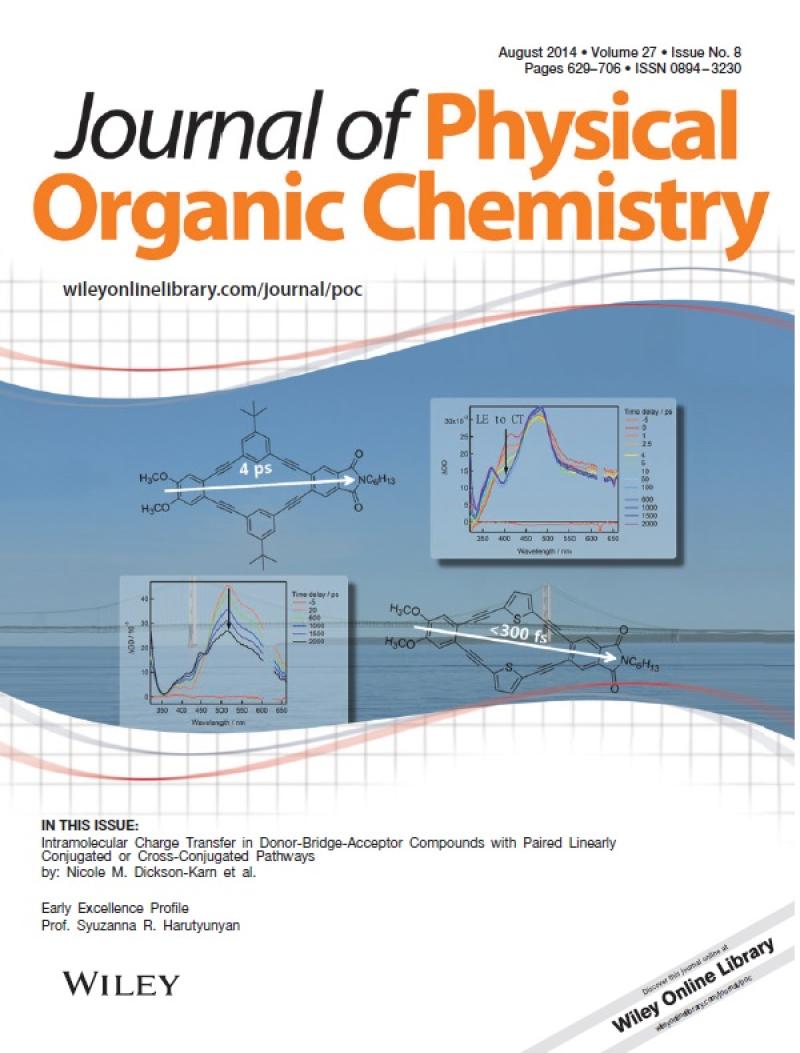
Nicole Karn
Associate Professor of Teaching and Analytical Lab Supervisor
2029 McPherson Laboratory
140 W 18th Ave
Columbus, OH 43210
Areas of Expertise
- Analytical Chemistry Instruction
- Undergraduate Teaching Labs
Bio
Nicole Karn received her bachelor of science degree from Muskingum University in 2004. She obtained her master’s degree from The Ohio State University in 2008 and her Ph.D. in Analytical Chemistry from The Ohio State University in 2011. From 2011-2015 Nicole was an assistant professor of chemistry at Ohio Northern University in Ada, Ohio. In 2015, Nicole returned to the Department of Chemistry and Biochemistry at The Ohio State University to serve as an Associated Assistant Professor and Instructional Lab Supervisor for the Analytical Chemistry Laboratory.
Research Overview
Investigation of the spectroscopic properties of newly synthesized pyrazolopyrimidines
Proton transfer is a fundamental reaction in chemistry. Our group has begun investigation of a new series of pyrazolopyrimidines which have hydroxyl groups that may allow for proton transfer to a carbonyl oxygen or nitrogen. We utilize spectroscopy to characterize the compounds in various solvents as well as various pH in aqueous solution with the goal to understand excited-state proton transfer in these molecules.
Investigation of Charge Transfer in Cross-Conjugated Compounds
Molecular electronics and solar energy devices such as molecular switches, non-linear optics and solar energy devices cannot be fully utilized until the fundamentals of the ways in which organic molecules transfer charge is understood making the study of intramolecular charge transfer across conjugated organic molecules important for their development. Recently, cross-conjugated molecules have been proposed for use as bridging molecules in donor-bridge-acceptor devices. In a cross-conjugated molecule, two unsaturated groups are conjugated to a third group but are not conjugated to each other. Until recently, cross-conjugated molecules were not considered good candidates for molecular electronics and solar energy devices due to their reduced electronic coupling as compared to linearly conjugated molecules. However, cross-conjugation has been shown to control charge transfer though many questions remain. Controlling charge transfer can allow for the rational design of molecular electronics and solar energy devices. In our research group, we aim to characterize spectroscopically cross-conjugated diphenylbutadiene and its donor-acceptor analogs using UV-Vis and emission techniques, and determine the rates of charge separation and recombination using time-resolved spectroscopic techniques.

Recent Publications
Dickson-Karn, N. M., Olson, C. M., Leu,, W.C., Hartley, C. S. Intramolecular Charge Transfer in Donor-Bridge-Acceptor Compounds with Paired Linearly Conjugated or Cross-Conjugated Pathways, J. Phys. Org. Chem., 2014, 27, 661-669
Li, Z; Leed, N., Dickson-Karn, N. M., Dunbar, K., Turro, C. Directional Charge Transfer and Highly Redox Active Excited States of New Dirhodium(II,II) Complexes: Potential Applications in Solar Energy Conversion Chem. Sci., 2014, 5, 727-737.
Sun, Y., Joyce, L. E., Dickson, N. M., Turro, C. Efficient DNA photocleavage by [Ru(bpy)2(dppn)]2+ with visible light, Chem. Comm. 2010, 46, 2426-2428.
Sun, Y., Joyce, L. E., Dickson, N. M., Turro, C. DNA Photocleavage by an Osmium(II) complex in the PDT Window, Chem. Comm, 2010, 46, 6759-6761.
